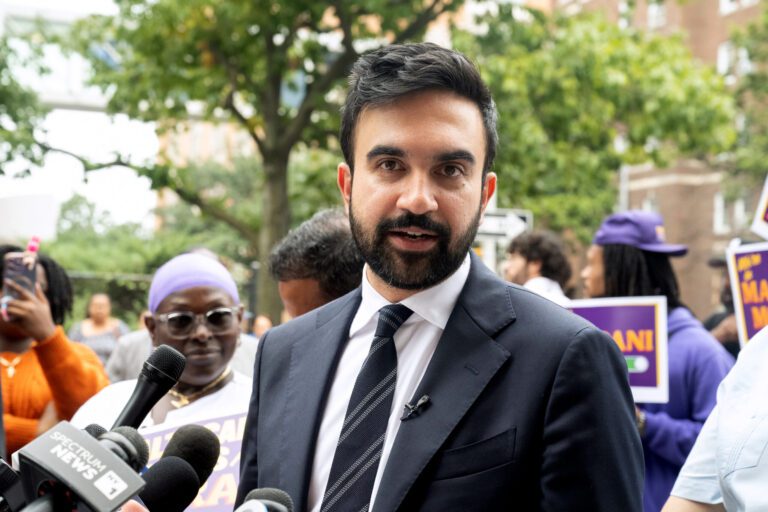Evaluating Zohran Mamdani’s Mayoral Platform: Ambitious Proposals Amid Financial Challenges
Zohran Mamdani’s mayoral campaign is built on a suite of bold promises aimed at addressing New York City’s pressing issues, including housing affordability, childcare access, and public safety. However, the fiscal implications of these commitments warrant careful examination.
Key Campaign Promises
Mamdani’s platform encompasses several transformative initiatives:
- Rent Freeze
- 200,000 Units of Public Housing
- Universal Childcare
- Fare-Free Public Transportation
- Creation of a Department of Community Safety
- Higher Taxes on Wealthy Households and Corporations for Funding
While each promise resonates well with constituents, the financial realities of implementing such proposals are complex.
Financial Feasibility of Housing Plans
Affordable Housing Commitment
Mamdani aims to produce 200,000 union-built, permanently affordable homes over ten years, with an estimated cost of $100 billion. The challenge lies in hitting the right budget per unit. Recent housing developments indicate substantial variability in construction costs:
- High-End Projects: Costing upwards of $700,000 per unit.
- Lower-Cost Developments: Closer to $180,000 per unit.
To remain within the proposed budget, the average cost per unit must not exceed $500,000, which requires:
- Strategic land acquisition
- Procurement reforms
- Effective labor negotiations
- State or federal subsidies
An insider revealed that regulatory challenges are a significant hurdle: "Our regulatory system is one of the most intensive in the country; unless reformed, affordability will remain elusive."
Universal Childcare: High Costs and Challenges
Childcare Costs
Mamdani also proposes a universal childcare system, addressing skyrocketing costs in New York City, which average $26,000 annually for center-based infant care. Achieving true universal coverage could require over $800 million annually for subsidies, with city-level funding seen as unsustainable without broader federal or state support.
Andrew Rein from the Citizens Budget Commission remarked, "Universal childcare at the city level is really a federal-level challenge requiring enormous resources."
Operational Costs: Public Transport and Community Safety
Fare-Free Transportation Initiative
Eliminating bus fares could exacerbate revenue shortfalls for the Metropolitan Transportation Authority (MTA), which already experiences deficits from fare evasion, costing around $1 billion annually. There are concerns that making bus fares free could lead to further financial complications and deter legitimate ridership.
Allison Schrager noted, "The MTA is always on the verge of running out of money."
Department of Community Safety
Mamdani’s plan to form a new department focusing on crisis responders and social workers for non-violent calls can exponentially increase annual costs. Experts caution that without proper funding mechanisms, such an initiative could drain resources intended for other community services.
Grocery Stores and Economic Viability
Government-Run Grocery Stores
Mamdani has proposed establishing city-owned grocery stores to tackle food deserts. However, critics argue this might require ongoing subsidies to remain viable, raising questions about its long-term sustainability. Zilvinas Silenas pointedly remarked, "The entire idea is driven by the ideology of government taking over business."
Funding Strategies: Millionaire Surcharge Risks
To fund these ambitious initiatives, Mamdani suggests a 2% surcharge on incomes over $1 million. While projections estimate this could generate between $5 to $15 billion annually, potential pitfalls exist:
- Dependency on a Few High Earners: The financial health of this plan hinges on a small number of wealthy taxpayers.
- Legislative Approval Necessary: Albany’s buy-in is crucial, adding an additional layer of complexity.
Rein cautioned, "New York City already has very high taxes, and further increases could push people out."
The Bigger Picture: Debt and Fiscal Reality
As of FY 2025, New York City’s debt is projected to be $94.9 billion, with significant portions of the budget allocated to servicing this debt. A financial downturn could strain both revenues and service provisions.
Mamdani’s sweeping agenda will necessitate not just visionary leadership but tangible, effective financial planning. As changes are proposed, the focus on accountability and cost-benefit analysis is paramount.
Conclusion: Balancing Vision with Reality
Zohran Mamdani’s campaign taps into vital social issues facing New York City, offering visionary solutions. However, the realities of financing, regulation, and operational sustainability pose critical questions. Continuous dialogue and realistic strategies will be essential as the campaign unfolds.
For more insights into Mamdani’s specific proposals and New York City’s fiscal landscape, refer to trusted sources like Citizens Budget Commission and The New York Sun.


